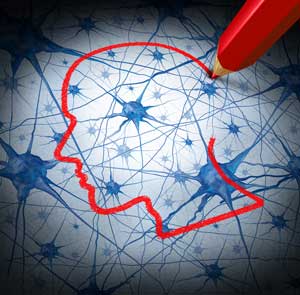Meditation boosts melatonin, serotonin, GABA, DHEA, endorphins, growth Hormone, and more
Backed by thousands of studies, meditation's incredible benefits reach far and wide. Here, we explore how these ancient practices labelled "meditation" upgrade seven critical brain and body chemicals — as well as the massive implications.
Serotonin: The "Happy Neurotransmitter," Ends Depression | Cortisol: The "Stress Hormone," Elevates Health | DHEA: The "Longevity Molecule," Slows Aging | GABA: The "Calm Chemical," Ends Addiction, Anxiety | Endorphins: The "Natural High," Boosts Mood | Growth Hormone: The "Fountain of Youth," Upgrades Health | Melatonin: The "Sleep Molecule," Ends Insomnia
#1: The "Happy Neurotransmitter" — How Meditation Boosts Serotonin
#1: The "Happy Neurotransmitter" — How Meditation Boosts Serotonin

Of our approximately 86 billion brain cells, most all are influenced by serotonin. Known by many scientists as the "happy" neurotransmitter, serotonin is key to helping relay signals from one part of the brain to another.
This crucial chemical has a profound impact on our mood, contributing greatly to our overall state of well-being.
According to Princeton brain researcher Barry Jacobs, PhD, depression sets in when fewer and fewer new brain cells are created, with stress and age being the leading trigger. Thankfully, depression sufferers don’t need to submit to a diminished quality of life, there is a highly effective, all-natural solution.
This crucial chemical has a profound impact on our mood, contributing greatly to our overall state of well-being.
According to Princeton brain researcher Barry Jacobs, PhD, depression sets in when fewer and fewer new brain cells are created, with stress and age being the leading trigger. Thankfully, depression sufferers don’t need to submit to a diminished quality of life, there is a highly effective, all-natural solution.

University of Montreal scientists (Perreau-Linck, et al.) have shown that activities like mindfulness have a direct impact on the brain’s production of serotonin levels. It is thought that meditation "bathes" neurons with an array of feel-good chemicals, effectively melting away the stress that leads to low serotonin levels and depression.
In the end, meditation’s serotonin replenishing effect works to create a utopian chemical environment for the production of new brain cells, making you a happier and healthier person.
More Serotonin Benefits: ▲Heart health | ▲Neuroplasticity | ▲Brain cells | ▼Anxiety | ▼Depression | ▲Sleep | ▲Energy | ▲Happiness | ▲Mood | ▲Controls appetite | ▼Obesity | ▼Free radicals | ▲Longevity | ▲Relaxation |
In the end, meditation’s serotonin replenishing effect works to create a utopian chemical environment for the production of new brain cells, making you a happier and healthier person.
More Serotonin Benefits: ▲Heart health | ▲Neuroplasticity | ▲Brain cells | ▼Anxiety | ▼Depression | ▲Sleep | ▲Energy | ▲Happiness | ▲Mood | ▲Controls appetite | ▼Obesity | ▼Free radicals | ▲Longevity | ▲Relaxation |

Cortisol, a major age-accelerating hormone, is the one chemical where less is better. When we are stressed, our bodies produce cortisol and adrenaline in abundance. This is normal, a natural product of our evolution.
However, over the long term, the chemical cocktail present when under chronic stress is not normal, and can tear your body down, destroying healthy muscle and bone, blocking the creation of good hormones, eventually leading to anxiety, depression, increased blood pressure, brain fog, insomnia, inflammation, the list goes on and on. Clearly, too much of this stress hormone is really bad news for your overall physical health.
However, over the long term, the chemical cocktail present when under chronic stress is not normal, and can tear your body down, destroying healthy muscle and bone, blocking the creation of good hormones, eventually leading to anxiety, depression, increased blood pressure, brain fog, insomnia, inflammation, the list goes on and on. Clearly, too much of this stress hormone is really bad news for your overall physical health.
Luckily, scientists have found a very powerful solution. In 2013, researchers at UC Davis discovered a very powerful connection between mindfulness and cortisol, with remarkable results seen within only a few short weeks.
In fact, another study by a Rutgers University doctor discovered that meditators had a nearly 50% reduction in cortisol levels! As many scientists claim Cortisol to be public enemy #1, meditation is always on-call ready to save the day!
▼"Fight or Flight" | ▼Chronic stress | ▼Inflammation | ▲Sleep | ▲Brain function | ▼Cholesterol | ▼Blood pressure | ▼Brain fog | ▼Insomnia | ▼Obesity | ▼Disease |
#3: The "Longevity Molecule" — How Meditation Boosts DHEA

Best known by researchers as the "longevity molecule" and stress counter-puncher, DHEA is one of the most important hormones in the body. As we get older our DHEA levels decrease year after year, opening us up to disease and accelerated aging.
Doctors have measured DHEA levels to find a patient’s physiological "true age", a far more accurate health marker than "age in years." In fact, a 12 year study of 240 men (50-79 years) found that DHEA levels were directly linked to mortality. The researchers' findings were simple yet impactful: the less DHEA you have, the fewer years you have left.
Luckily, meditation provides a dramatic boost in DHEA hormone levels. Dr. Vincent Giampapa, M.D., former President of the American Board of Anti-Aging Medicine and current prominent longevity researcher, discovered that meditation practitioners have an incredible 43.77% more DHEA over everybody else! Is meditation the fountain of youth? Many scientists think so.
▲Longevity | ▲Heart health | ▲Brain function | ▲Energy | ▲Muscle tone | ▲Metabolism | ▲Fat loss | ▲Sex drive | ▼Mood swings | ▼Inflammation | ▼Cholesterol |
#4: The "Calm Chemical" — How Meditation Boosts GABA
Doctors have measured DHEA levels to find a patient’s physiological "true age", a far more accurate health marker than "age in years." In fact, a 12 year study of 240 men (50-79 years) found that DHEA levels were directly linked to mortality. The researchers' findings were simple yet impactful: the less DHEA you have, the fewer years you have left.
Luckily, meditation provides a dramatic boost in DHEA hormone levels. Dr. Vincent Giampapa, M.D., former President of the American Board of Anti-Aging Medicine and current prominent longevity researcher, discovered that meditation practitioners have an incredible 43.77% more DHEA over everybody else! Is meditation the fountain of youth? Many scientists think so.
▲Longevity | ▲Heart health | ▲Brain function | ▲Energy | ▲Muscle tone | ▲Metabolism | ▲Fat loss | ▲Sex drive | ▼Mood swings | ▼Inflammation | ▼Cholesterol |
#4: The "Calm Chemical" — How Meditation Boosts GABA

Best known for making you feel calm, GABA (gamma aminobutyric acid) is one of the major inhibitory neurotransmitters in your central nervous system.
Anyone with an addiction, including alcohol, drugs, tobacco, caffeine, and food, all have one thing in common: lack of GABA. Not having enough of this super-important chemical can create an array of problems, including anxiety, nervousness, racing thoughts, and sleeplessness. Luckily, there is an effective solution.
Anyone with an addiction, including alcohol, drugs, tobacco, caffeine, and food, all have one thing in common: lack of GABA. Not having enough of this super-important chemical can create an array of problems, including anxiety, nervousness, racing thoughts, and sleeplessness. Luckily, there is an effective solution.

In 2010, Psychiatrists at the Boston University School of Medicine found a 27% increase in GABA levels after only 60 minutes of mindful exercises - proven even more effective than physical exercise! Researchers were quite surprised by the "more powerful than exercise" finding, but meditation has been practiced over the millennia for very good reason.
Visiting this super-effective neuron soothing state every day during meditation can effectively melt away any anxiety and addiction you may carry, clearing the path for your highest potential to be realized.
▼Anxiety | ▼Depression | ▼Addiction | ▲Brain function | ▲Mental focus | ▲Calm | ▼ADD/ADHD | ▼Panic attacks | ▲Sleep | ▲Quiet mind | ▲Longevity | ▲Stress relief |
#5: The "Natural High" — How Meditation Boosts Endorphins

Responsible for the all-encompassing sense of happiness we sometimes feel, endorphins are a category of neurotransmitters that the body uses as an internal pain killer. A 1995 study (Harte et al) published in the Biological Psychology Journal tested the neurochemical release of two groups — 11 elite runners and 12 highly trained meditators — after running and meditation, respectively. What did they find? Both groups’ endorphin levels were greatly elevated. Perhaps even more amazing, meditation's "feel-good effect" scored even higher than running!

Joggers have coined the term "runners high" to describe how wonderful the endorphin rush feels after a nice, long run. This happy, Zen-like, alert state of bliss can be a powerful and highly pleasurable experience, going a long way to explain why so many runners are addicted to their sport. Luckily, this wonderful mind-state is readily found through meditation. Maybe it is time for meditators to come up with a cool phrase for how good they feel after meditation?
▲"Natural high" | ▲Happiness | ▲Well-being | ▼Chronic pain | ▲Stress relief | ▲Self-esteem | ▲Confidence | ▲Motivation | ▲Willpower | ▲Relaxation | More
▲"Natural high" | ▲Happiness | ▲Well-being | ▼Chronic pain | ▲Stress relief | ▲Self-esteem | ▲Confidence | ▲Motivation | ▲Willpower | ▲Relaxation | More

No comments:
Post a Comment